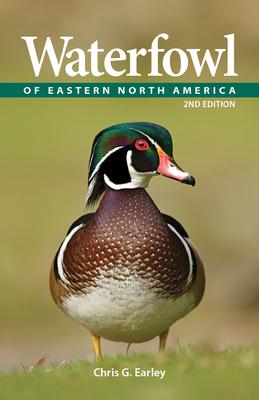This is an attractive handbook for novice birders, new hunters, and others wanting to name waterfowl. Summing Up: Recommended. --Choice
The eastern Continental Divide from Florida to Ontario contains the world's largest network of freshwater lakes, rivers, wetlands and coastal waters. It is home to an astonishingly large variety of ducks, geese and other waterfowl although many of them may be sighted both to the west or to the south at times in the year.
Illustrated with over 400 photographs of waterfowl in their natural environment, this essential field guide illustrates the rich diversity among these birds. It is designed specifically to help birders identify ducks, geese and shorebirds and become familiar with the features and colors to look for upon sighting a bird. Species information is concisely organized and includes the differences between male and female, seasonal and immature plumage, morphs and distinctive markings.
Waterfowl of Eastern North America covers ducks, geese, loons, pelicans, swans, grebes, coots, cormorants, and moorhens. The sections are:
- Classification A list of the birds in the book, how they are classified, notes similar shapes and behaviors of the dabblers; the divers; the mergansers; and the loons and grebes.
- Identification Annotated photographs show notable physical features used to aid identification.
- Waterfowl Look-alikes: Comparative photographs of Gulls, Phalaropes, Aquatic Seabirds, and Rails.
- Table of Seasonal Status of Waterfowl in Point Pelee National Park One of North America's most important migration stopovers this is an outstanding place to see and identify waterfowl.
- Bird Profiles Double-page spreads of essential information and descriptions to aid in identification.
- Features Comparisons Photographs of 33 species that are frequently misidentified and what to look for.
- Flight Comparisons Photographs of Dabblers, Geese and Swans, and Divers in flight.
Finally, Chris Earley shares how readers can help waterfowl wherever they live, from a simple nesting box to bird counts. Birders and naturalists who want to support conservation groups that protect waterfowl and their quickly disappearing habitats will want to add this book to their library.
